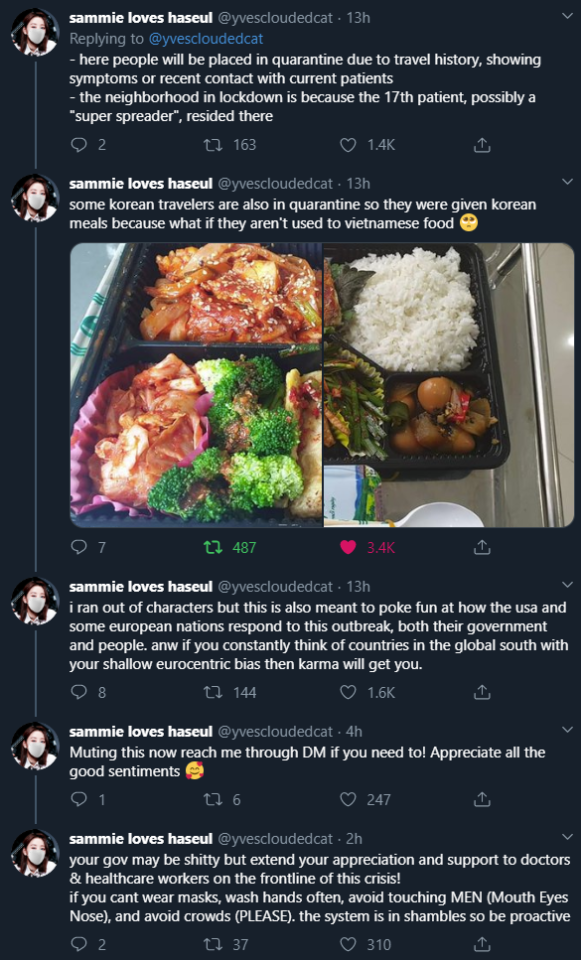In the midst of all the news about the COVID-19 pandemic, it’s understandable that not everything is being reported on. One thing that should be reported on, but that I’m having trouble finding articles about, is how the Marxist-Leninist government of Vietnam is handling the outbreak and quarantine. As of March 6th, they were mass-producing testing kits, and claimed to have the capacity to export testing kits while meeting their own needs.
They’ve had people in isolation and quarantine, and have been making that easier by providing groceries to people in lockdown, for free.

“western media wont talk about this but the vietnamese government is helping citizens fight the coronavirus by offering free /proper/ meals for people in quarantine areas and free groceries/necessities for a whole neighborhood in lockdown”

“- here people will be placed in quarantine due to travel history, showing symptoms or recent contact with current patients – the neighborhood in lockdown is because the 17th patient, possibly a “super spreader”, resided there” ** “some korean travelers are also in quarantine so they were given korean meals because what if they aren’t used to vietnamese food” ** “i ran out of characters but this is also meant to poke fun at how the usa and some european nations respond to this outbreak, both their government and people. anw if you constantly think of countries in the global south with your shallow eurocentric bias then karma will get you.” ** “Muting this now reach me through DM if you need to! Appreciate all the good sentiments” ** “your gov may be shitty but extend your appreciation and support to doctors & healthcare workers on the frontline of this crisis! if you cant wear masks, wash hands often, avoid touching MEN (Mouth Eyes Nose), and avoid crowds (PLEASE). the system is in shambles so be proactive”
They’re taking steps to reduce stigma surrounding people who’ve fallen victim to the virus, to make quarantine economically feasible for those undergoing it, and to actively take care of the population. From what I can tell, their response to this crisis is putting capitalist countries to shame, and while I don’t want their precise form of government, or all of the restrictions on dissent they have, I think it would be a mistake to ignore the good things they have going as well. I’m less interested in political labels than I am in the wellbeing of humans as a whole, and there is no reason why we cannot have a system that can respond to a crisis the way the Vietnamese government is doing, while also having the freedoms that some in the West believe are somehow inextricably tied to capitalism.
We can have a better world,
